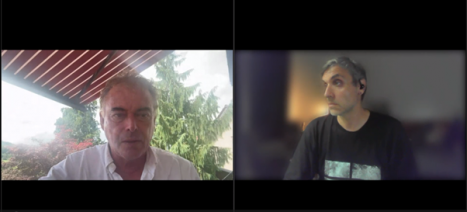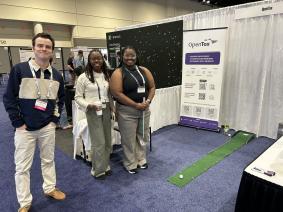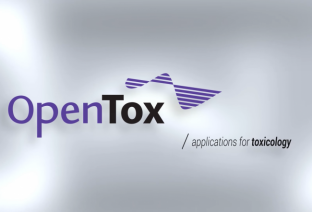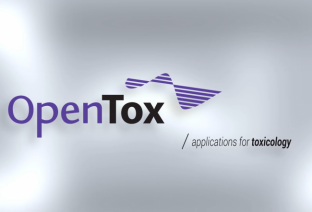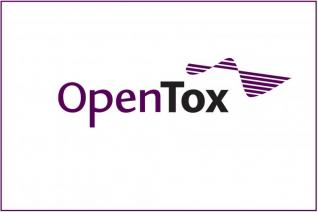OpenTox Community Development and Launch in India
G. Narahari Sastry (Indian Institute of Chemical Technology) and Barry Hardy (OpenTox Association)
The first OpenTox India workshop and community meeting were held in Hyderabad 1-3 March 2019 and hosted by the Indian Institute for Chemical Technology (CSIT) as OpenTox Asia 2019.
The meeting was co-chaired by G. Narahari Sastry, Barry Hardy, Alok Dhowan, and Indira Ghosh, and featured the theme of advances in predictive toxicology including session topics on Data Management and Integration, Computational Science and Modelling, Application of Chemistry and Biology to Alternative Testing Methods, Application of Integrated Testing Methods & Weight of Evidence, Emerging approaches to Industrial & Regulatory Risk Assessment and International Collaboration in Toxicology.
The program included ca. 25 presentations from leading researchers from across India in addition to international speakers on topics such as network pharmacology, multiscale modelling, metabolism, nanotoxicology, drug design and lead optimization, adverse outcome pathways, machine learning, data fusion and predictive toxicology providing a wealth of diversity of stimulating topics as can be seen from the program (https://opentox.net/events/opentox-asia-2019). We also celebrated and acknowledged the career-long contributions of Prof. Indira Ghosh, including the early involvement of India in OpenTox activities, with a keynote lecture and recognition ceremony.
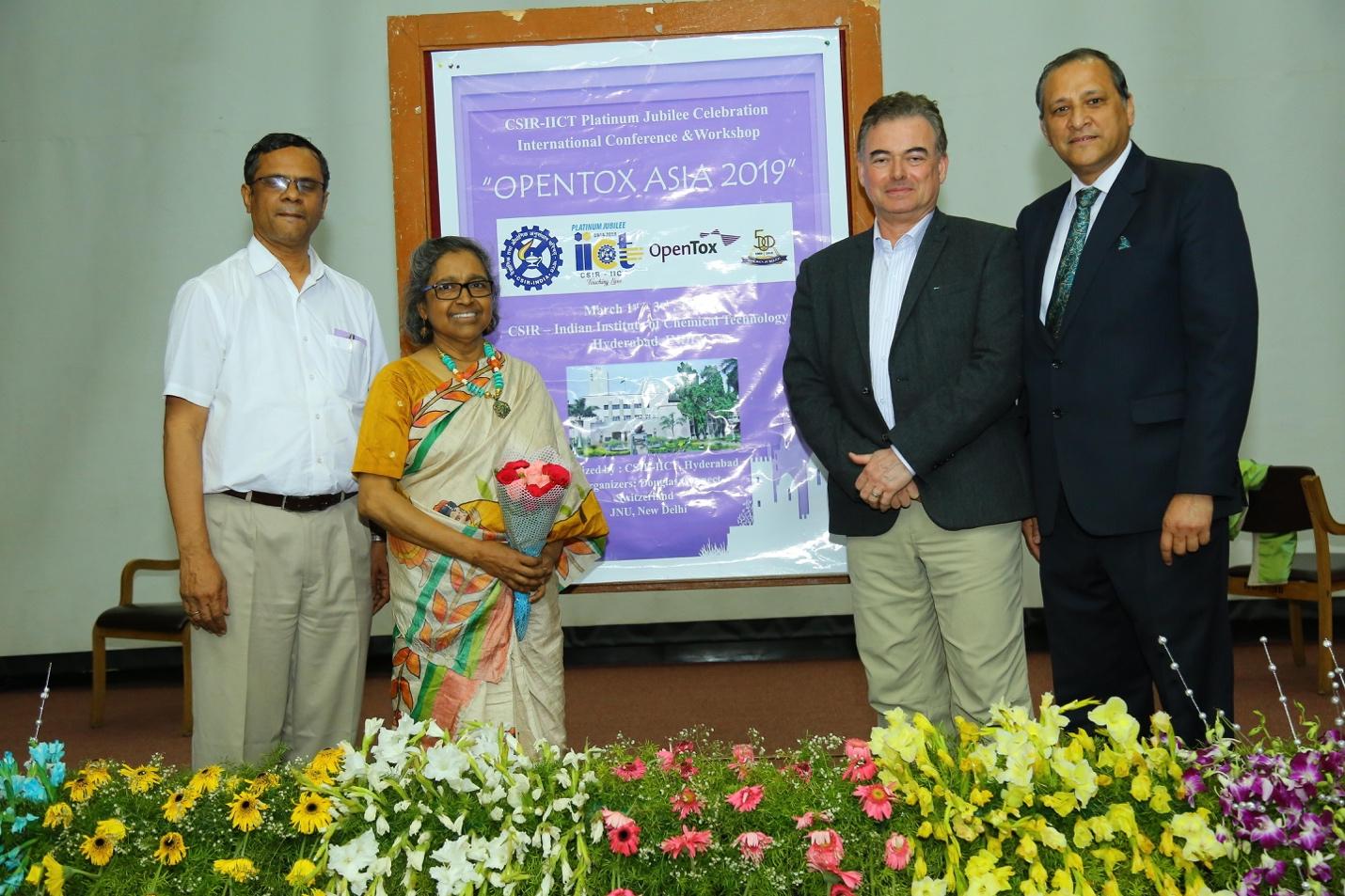
The hands-on workshop was led by Priyanka Banerjee, G. Narahari Sastry and Barry Hardy using a format used previously in eCheminfo hands-on community of practice workshops i.e., small groups were formed from the participants who selected their own questions and problems to be worked on by the group as case study work progressed by the methods and software tools explained during the lecture portion of the workshop. The hands-on work carried out at the workshop was intended to seed further ongoing work by the groups and to be continued at a follow-on workshop to be held later in the year (at Lucknow in November).
The workshop focused on different theoretical methods for design, development, validation, and implementation of the computational methods (especially using open source components and tools) with this knowledge transferred into the practice with the hands-on case study work. The main goal of the workshop was to understand the relationship between chemical structure and the biological activity profile with respect to toxicity.
The workshop commenced with short sessions explaining the methods and tools available for carrying out the case study work. The workshop leaders introduced concepts of theoretical models. Most of the time, such computational models and their application must deal with imbalanced chemical data and it is a challenge to construct a classifier using imbalanced data set. The workshop leaders discussed the importance of sampling methods and cross-validations approaches. Mainly three components of machine learning were discussed: data, features, and algorithms. The workshop commenced with short sessions explaining the methods and tools available for carrying out the case study work. The workshop leaders introduced the concepts of theoretical models before the case study groups elaborated their hands-on work on their selected projects.
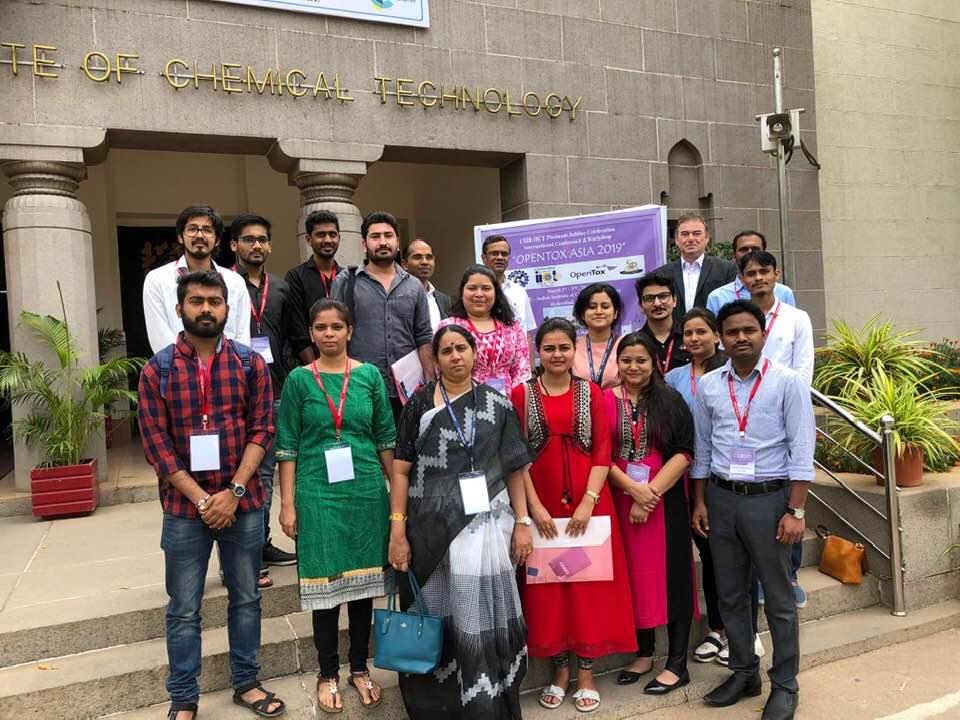
A Knowledge Café involving extensive smaller group discussions was held with the theme of Frontiers in Healthcare and Environmental Care within the Indian context. The goals of the Café were to provide a forum for discussion and knowledge sharing on topics related to new frontiers in healthcare and environmental care and related societal goals in India through 2030, targeting development of an infrastructure and framework enabling a sustainable economy supporting wellness outcomes for all citizens and including the latest developments in science and technology deployed to help achieve these goals.
The format aimed to develop a trusted social community environment providing an opportunity for participants to network, socialize, develop relationships and a deeper understanding of different points of view and experiences in the topics discussed. Finally, the moderation and coordination support team captured the knowledge shared during the discussions. The materials are being developed into a White Paper communications providing Perspectives and a Roadmap for Indian Science enabling a Healthier Society and Wellness Environment. Group sub-topics included P4 medicine (predictive, preventive, personalized and participatory), environmental care and challenges in healthcare, chemoinformatics, drug discovery, and academic-industry interactions.
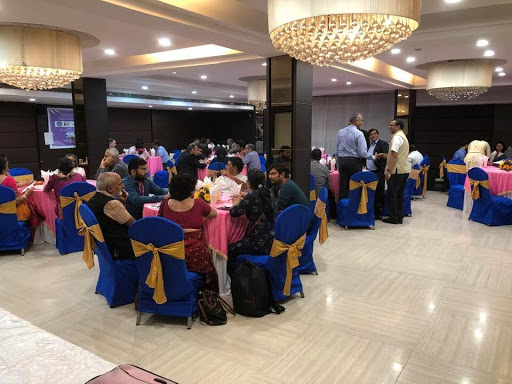
At the event, several investigators from institutions across India agreed to form an Indian Local Chapter. The next major activity is planned for Lucknow in November where the workshop activity initiated in Hyderabad will be continued.

